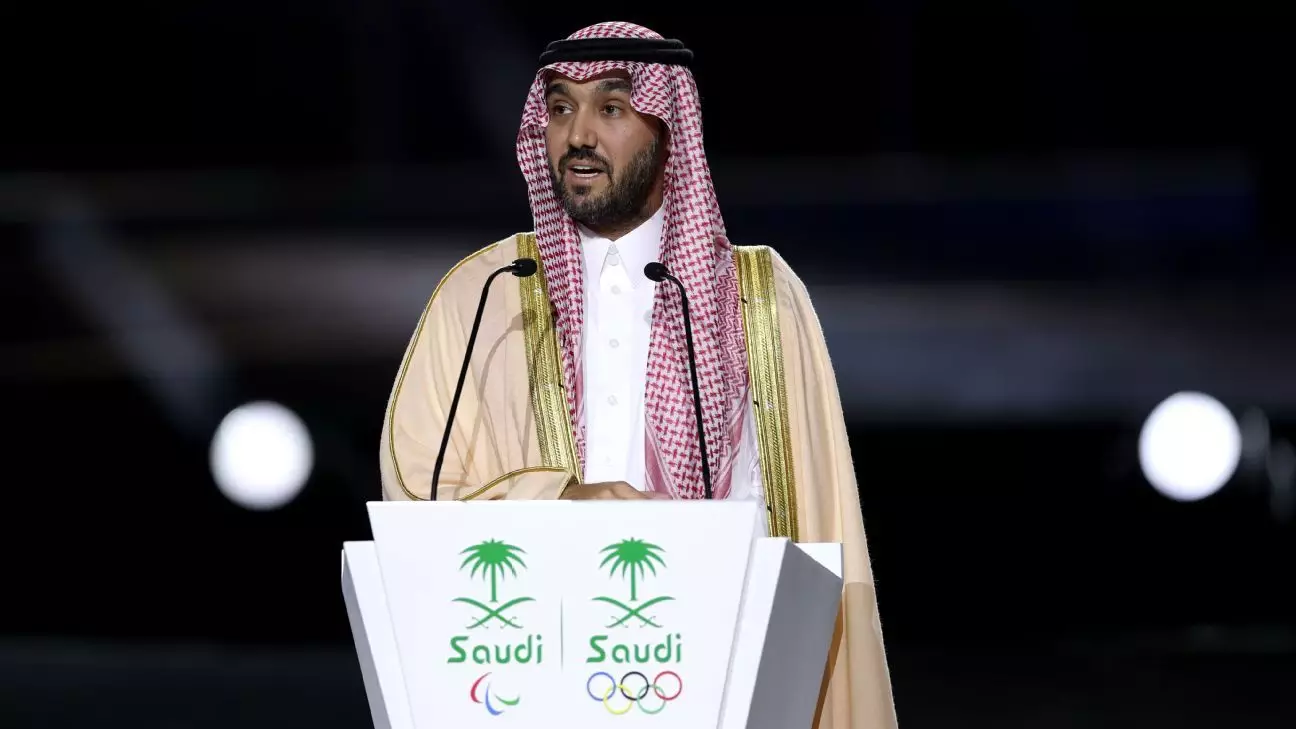As the world gears up for the 2034 FIFA World Cup, it is crucial to focus not just on the glitz and glamour of the event, but also on the more sobering realities surrounding its organization. Recently, Prince Abdulaziz bin Turki Al-Faisal, Saudi Arabia’s sport minister, addressed the tragic death of a migrant worker during the construction of a stadium in Al Khobar. This incident raises significant questions about the nation’s commitment to worker safety, particularly in an environment already rife with concerns regarding the treatment of migrant labor. While the remark that safety is being taken “seriously” is commendable, critical examination reveals a systemic issue that cannot be overlooked.
The Construction Landscape
The construction industry, especially in Saudi Arabia, is characterized by a staggering reliance on migrant labor. Companies like Besix Group, which is responsible for the ongoing construction at the Aramco Stadium, are often faced with heightened responsibility. The unfortunate death of Muhammad Arshad, a Pakistani worker who fell from an upper level, underscores the persistent risks that construction workers face daily. While Al-Faisal hastily assures the public of investigations and preventive measures, such promises remain hollow without comprehensive structural reforms aimed at safeguarding workers.
The claim that “every incident we take seriously” is weakly supported by an evident pattern of negligence in the treatment of migrant workers, an ongoing challenge throughout the Middle East. Notably, comparisons to previous projects, such as Diriyah, where allegedly no significant incidents occurred for several months, reveal a dangerous tendency to use sporadic success as a benchmark for overall safety. One death in an already high-risk occupation undertaken by vulnerable individuals should be a wake-up call, not merely an outlier in a narrative of progress.
A Culture of Accountability
Without a culture of accountability that clearly prioritizes migrant worker welfare, assurances of investigations feel insufficient. Al-Faisal’s arguments about ongoing discussions with their Qatari counterparts regarding lessons learned from the 2022 World Cup do little to quell the mounting fears. Every nation involved in hosting such high-profile events needs to establish and enforce stringent measures to protect workers, beyond theoretical compliance. The question remains: can Saudi Arabia truly foster an environment where safety is embedded in its construction culture?
The bet on the World Cup serving as a “catalyst for change,” as FIFA President Gianni Infantino suggests, requires critical scrutiny. The mere hosting of an international sporting event should not be viewed as an automatic solution to the persistent human rights issues that plague the region. Instead, it may serve to draw attention to the underlying injustices, prompting the very scrutiny that the Saudi government seems eager to avoid.
The Ethics of Sport and Human Rights
Critics, including international human rights organizations, have raised alarms about the decision to host the 2034 World Cup in a nation with a historically poor record on worker treatment. Their calls for public assurances from FIFA remain unanswered, a response that many have deemed as recklessness on the organization’s part. “The day football truly lost its mind,” voiced by the Football Supporters Europe group, reflects the growing discontent towards a prioritization of profit and international prestige over human lives.
In this context, the narrative surrounding the World Cup can no longer shy away from ethical scrutiny. The possible outcomes of hosting such an event must include measurable improvements in workers’ rights and protections. Without substantive changes implemented and verified, the construction of stadiums and infrastructure may well become synonymous with avoidable tragedies.
The Path Forward
To navigate this sensitive crossroads, it is essential for Saudi Arabia to prioritize worker safety unequivocally. A failure to do so risks not just the lives of countless migrant workers, but also the integrity of the World Cup itself. For Saudi officials to genuinely commit to change, tangible actions must replace mere words. Only then can the kingdom reshape its narrative from one of negligence to that of respect for human rights, turning the spotlight on a brighter future for all involved in this iconic event.

